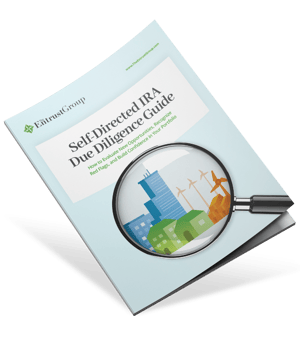
Private lending is an opportunity to invest in debt-based financial instruments, or loans. A loan investment made by a Self-Directed IRA (SDIRA) requires the creation of a promissory note. A promissory note is a written promise to repay debt under specified terms. These specific terms usually involve a declared timeline, series of payments, or funds due upon demand. They can also include an interest rate and written consequences that will occur if the borrower defaults.
One of the advantages of owning notes is a steady income stream. You can look forward to regular deposits into your Self-Directed IRA, where the income will grow tax-free (in a Roth IRA) or tax-deferred (in a Traditional IRA). The income received from a note is truly passive.







